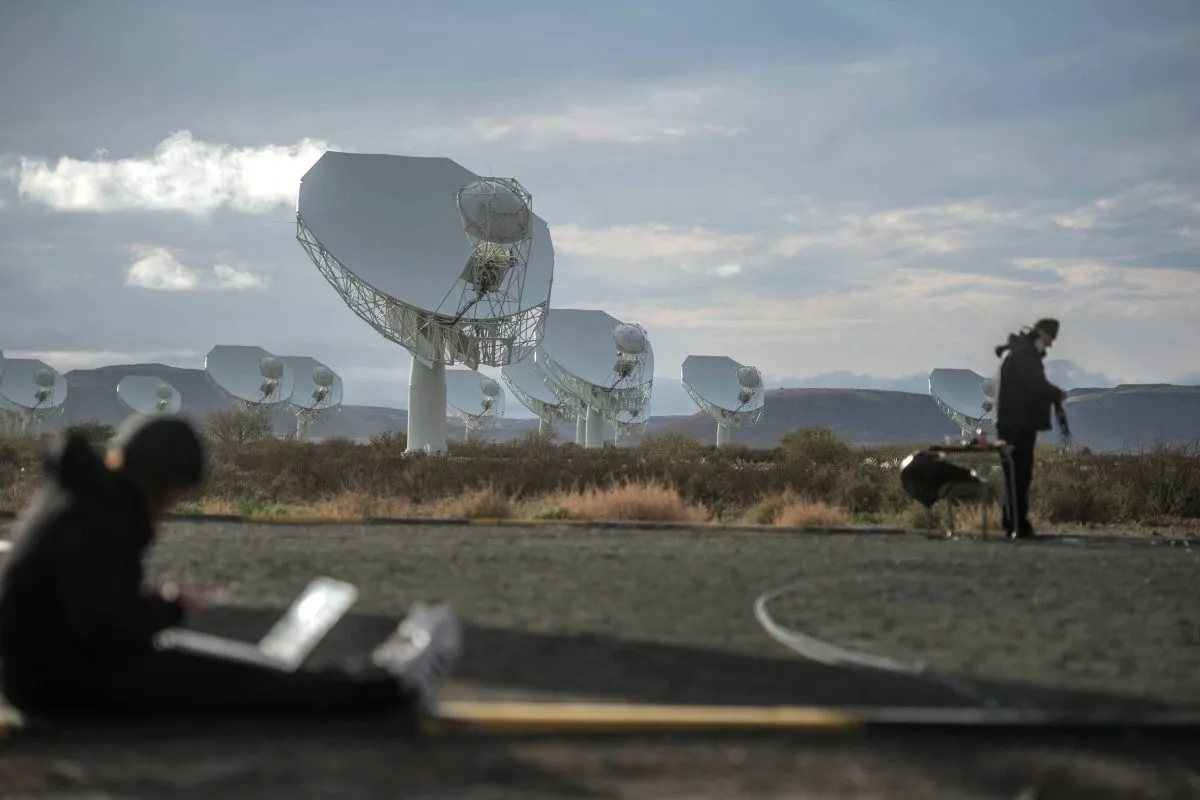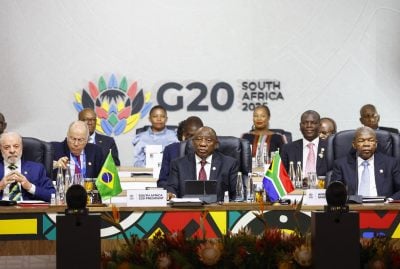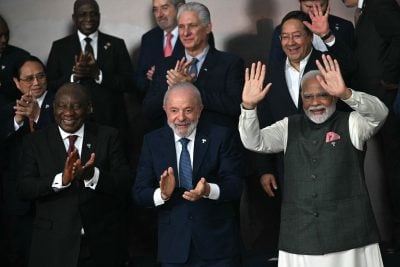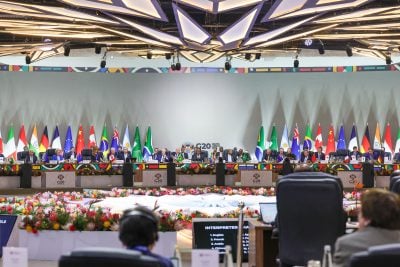The African Space Council is charged with coordinating the activities of the African Space Agency, guiding continental space policymaking, resource allocation, and regulatory oversights, and managing African space industry stakeholders, including governments and international partners, to facilitate favourable partnerships in space science and technology.
In this exclusive interview, Tidiane Ouattara, chairman of the Council – who formerly served as an advisor to the president of the Canadian Space Agency – talks about African space programmes and the challenges that lie ahead.
You head up the African Space Council, which will be officially inaugurated in Cairo in April 2025. How do you explain the creation of this institution?
I would like to thank the heads of state of the African Union for electing me to head the ASC. We are not behind the times, but we have taken time to organise ourselves as a continent. Today, we are well structured and organised. For the past fifty years, the African space has not been well structured, yet it is part of our daily lives. So we have done everything we can to ensure that space is at the service of Africans.
In concrete terms, what is your roadmap?
To enable every African citizen to have access to space services, at a good price, and to be able to use these products and services for the continent’s economic and social development. This concerns the telephone that everyone uses, television, radio and so on. For example, when you order a taxi, you are located and transported to your destination using space products and signals. All mobile transport applications work with space products, without which our life on earth would be a misery.
A number of countries have initiated their own space efforts, including Rwanda, Algeria, Egypt, South Africa, Nigeria and others. How can we bring synergies to bear on an African strategy?
The creation of the African Space Council is the result of the will of the heads of state and government themselves. These leaders have understood the importance of space in the development of their nations. The countries you mention are pioneers in this field. As we now have a space policy and strategy adopted and validated by the African Union, we can coordinate our activities and our visions at continental level. Countries need to work in symbiosis and solidarity to meet the challenges of space development, by putting in place infrastructures and services that will benefit all countries. Not all countries are at the same level of spatial development. Some need minimal infrastructure, others need much more advanced technologies…
How does the Council that you chair operate? What authority and decision-making powers does it have?
Everything is laid down in the statutes of the African Space Agency. It’s a Council made up of ten members, two from each region (one man and one woman), with a chairman and a vice-chairman. Our ‘roadmap’ is set out in the statute. We will soon be required to appoint a director general; this will be done in the course of 2025. We also have to put forward proposals and action plans, i.e. activities, programmes and a budget that will be validated by the member countries. We are following a process within the African Union.
Is there a risk that this system will come up against the inertia typical of large administrations?
Not at all. The policy of the African Space Agency is to work with national space agencies. We are not going to duplicate what already exists. For example, Algeria has the infrastructure and is already carrying out various activities. So do Nigeria, Egypt and South Africa, which are already pioneers in the field, and have the tools and infrastructure they need to develop.
So we’re going to enhance existing solutions and introduce innovations, but we won’t duplicate them. The activities of these countries will be extended to the whole continent. On the other hand, countries that do not have a space agency will need us to install or strengthen their space infrastructures. Space is a matter of national sovereignty. When you leave the borders of your country, you no longer have any rights over the other country. This is where the Space Agency comes in at just the right time to deal with cross-border projects that bring everyone together.
The project I have in mind now is the Global Monitoring for Environment and Security project, which involves 145 countries and 170 international institutions. However, we are not going to reproduce national activities at all, to avoid any resistance at national level.
You’ve just spent a week in France – how was the trip?
A very interesting and conclusive week. We visited the space ecosystem in Toulouse, which is an example of a model of economic development, where all sorts of structures have been set up around Space: schools, laboratories, private companies.
Space is the pillar of tomorrow’s economy. It would be interesting for African cities and countries to take inspiration from these economic models and adapt them to create an ecosystem, innovate and create jobs… Yes, there are influences everywhere. But Africa is open to everyone. As we say, our only interest is Africa. We are aware of the challenges ahead; Africa will do everything to make the best decisions in our own interests.
In the light of your academic and professional experience, how do you approach the challenges of space?
Space is made up of three segments: the ground segments, with infrastructure, stations, signals and data. Then there’s the space infrastructure itself, the satellite that transmits signals, captures information and uses it. And finally, the downstream or services, such as television, radio, military applications and so on.
These three segments are virtually non-existent in Africa. Our duty is to encourage countries to develop them. Training is our main tool. We need to build up a critical mass to be able to respond to these three segments. In Africa, based on a study, we found that French-speaking countries are much further behind than English- or Portuguese-speaking countries. We are taking advantage of France’s experience in this area of space to solve certain problems, particularly training. With space technologies, many people are teleworking. Africa, through its demography, is becoming a future reservoir for global companies and organisations.
How can the continent come up with practical solutions?
African leaders have understood that space is at the heart of development. With the new structure that has given rise to the African Space Agency, and the coordination of their activities, it won’t be long before the results materialise.
The advantage of this coordination is that those who already have experience in this sector share it with those who have just joined the process. We will try to strengthen their capacities and their effectiveness on the ground, through funding.
And financing space depends on a few things. We are going to explain to the national authorities in each country how to position space at the heart of their development. We will then approach the regional economic communities, which are the secular arms of the African Union in the regions.
Then, at continental level, we’ll be putting in place programmes and projects that bring people together, using space as a scientific model for African integration. Our Global Monitoring for Environment programme has enabled several countries to work together. We need the integration of different institutions and countries to work together.
What do you see as the major challenge for satellites?
Africa has around 40 of the world’s thousands of satellites. That’s nothing. We rent or pay for most of the satellite products and services we receive. Nothing belongs to us. That’s why I say we’re entering a new dynamic. We are the second major continent, after Asia, with trajectories that are conducive to space activities.
We must not rush into things: putting a satellite into orbit is one thing, ensuring its sustainability is quite another. We first need to train people in everything, including space law, which allows access to frequencies and orbits. And these orbits are already occupied.
The United Nations is doing what it can. It’s up to Africa to take its place. This is one of our battles. We are going to start discussions to reopen certain treaties, conventions and regulations. We have good friends who are accompanying us in these space discussions to take back what belongs to us.
We cannot do things by ignoring 55 countries in an area of 30m sq km, the second largest continent in the world. Everything happens in space without Africa. Africa will bring together all its experts to make African space more powerful and more autonomous.
How do you plan to increase space skills, employment and training?
Everything will be done through the training of young Africans to make human resources more capable of responding to the needs and emergencies of the moment. We are going to strengthen human capacities and mobilise resources to diversify our interventions with real impacts in job creation. We need to train in all segments of space.
From this point of view, I can distinguish four areas of importance. The first is Earth observation with satellites. We process the information received for water research and quality, precision agriculture, management of fisheries resources, coastal regions, etc.
The second part is satellite telecommunications such as television, telemedicine, teleworking, distance education, radio, etc.
The third is positioning and navigation, enabling us to find our way around using GPS, for example, for banking and other transactions.
And the fourth is astronomy, which enables us to predict the weather and space weather.
In all these areas, Africa is virtually absent. So, we need to work by first training people in science, in regulation, in marketing and in the politics of the sector. We need to have a data-sharing policy, for example. Data can’t be everywhere; if we’re producing critical information, we need to know how to protect it.
The United Nations already provides legal provisions, but states must also have regulatory provisions to protect private data. That’s why we need to train young people: let’s open up the discussion on training, look at tried and tested models elsewhere and try to adapt them while marking our own identity, over time.
Between now and April, what will you be doing to get up and running straight away?
We are fortunate in Africa to have many experts, both on the continent and in the diaspora. We’ll be calling on all African expertise, both inside and outside the continent. We will try to mobilise as much human capital as possible.
The diaspora can make a huge contribution. It needs to be in battle order. I appeal to all Africans in the world to come. Personally, I did it and I haven’t regretted it. Because the greatest reward is when you see your younger brothers and sisters, your children, their eyes shining with the knowledge you are sharing with them. There’s nothing more glorifying than sharing the knowledge you have with others.
Want to continue reading? Subscribe today.
You've read all your free articles for this month! Subscribe now to enjoy full access to our content.
Digital Monthly
£8.00 / month
Receive full unlimited access to our articles, opinions, podcasts and more.
Digital Yearly
£70.00 / year
Our best value offer - save £26 and gain access to all of our digital content for an entire year!
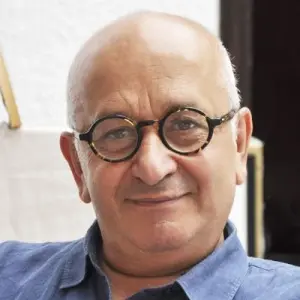
 Sign in with Google
Sign in with Google 